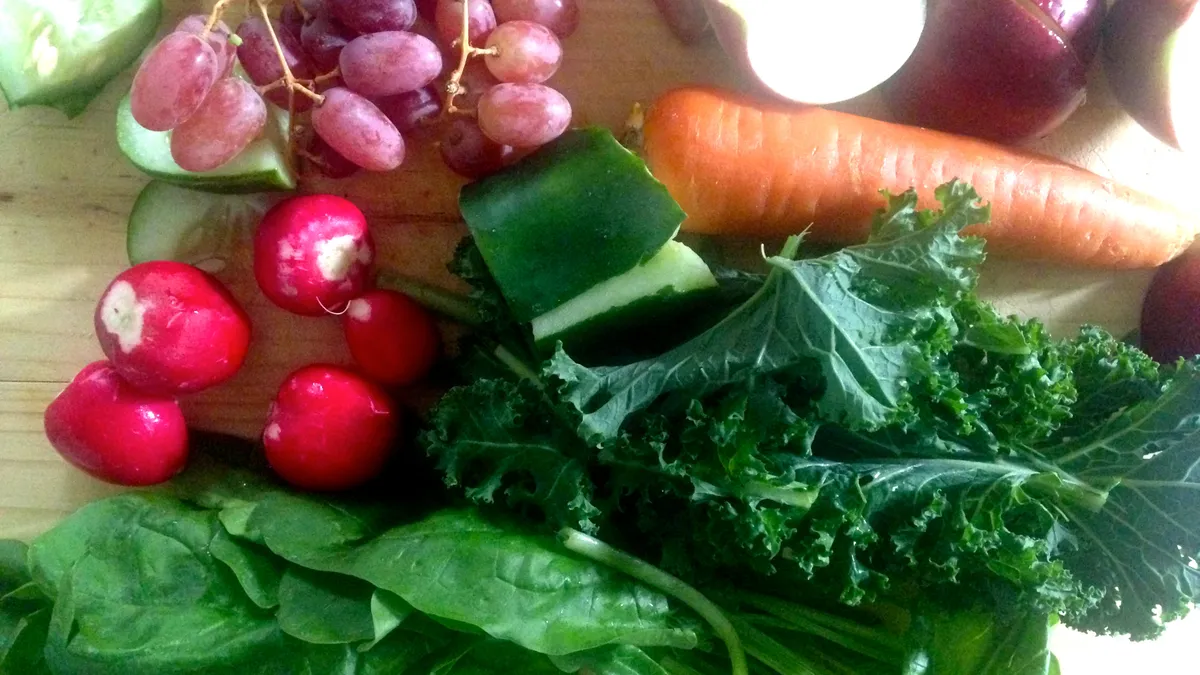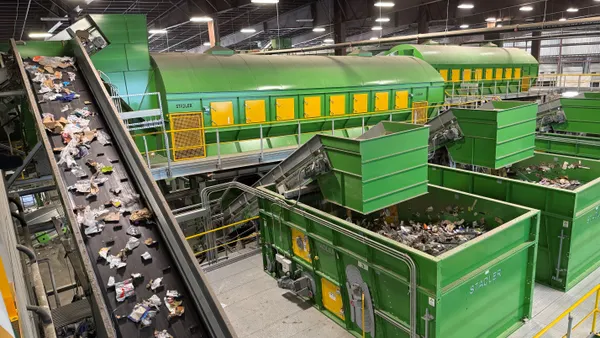Dive Brief:
- The statewide food ban in Massachusetts was implemented on October 1 for businesses generating 2,000 pounds or more of organic waste weekly.
- The DEP Commissioner David Cash is taking part in a tour across the state to check out new opportunities and benefits resulting from the law.
- It appears that most of the 1,700 commercial institutions -- including prisons, hospitals, colleges, nursing homes, and trade associations that represent the food service industry -- affected by the law aren’t experiencing major roadblocks when it comes to complying with the ban.
Dive Insight:
Cash said that institutions' ability to incorporate the food waste law almost seamlessly into their procedures can be attributed to the extended period of time businesses had to prepare for the ban. “[T]hat’s in part because we took four or five years to roll this out,” he said.
The Massachusetts Food Association said that grocery stores began planning for spoiled foods beginning in the 1990s. In recent years, many food waste businesses have sprouted up, such as those for hauling and composting leftovers, while some farmers have started buying food scraps for their animals. "Anaerobic digestion” is also taking off, prompting a new market for the state in the form of the conversion of food into fuel, energy, and electricity.
Cash noted that there were no plans, at this time, to expand the ban to include businesses that generate less than 2,000 pounds of organic waste. He said that he has noticed signs that the regulations have prompted companies who create less than the regulated amount to enroll in food waste collections after learning about other businesses' savings.














